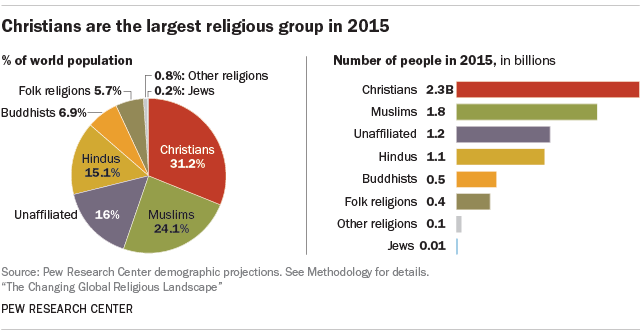
Christians remained the largest religious group in the world in 2015, making up nearly a third (31%) of Earth’s 7.3 billion people, according to a new Pew Research Center demographic analysis. But the report also shows that the number of Christians in what many consider the religion’s heartland, the continent of Europe, is in decline.
Christians had the most births and deaths of any religious group in recent years, according to our demographic models. Between 2010 and 2015, an estimated 223 million babies were born to Christian mothers and roughly 107 million Christians died – a natural increase of 116 million.
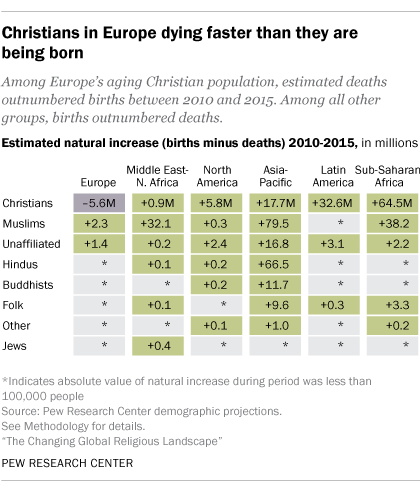
But among Christians in Europe the reverse is true: Deaths outnumbered births by nearly 6 million during this brief period. In Germany alone, there were an estimated 1.4 million more Christian deaths than births from 2010 to 2015. This natural decrease in Europe’s aging Christian population was unique compared with Christians in other parts of the world and other religious groups. In fact, Muslims and the unaffiliated in Europe both experienced natural increases in their populations, with our new report estimating that there were over 2 million and 1 million more births than deaths, respectively, between 2010 and 2015.
Globally, Muslims make up the second largest religious group, with 1.8 billion people, or 24% of the world’s population, followed by religious “nones” (16%), Hindus (15%) and Buddhists (7%). Adherents of folk religions, Jews and members of other religions make up smaller shares of the world’s people.
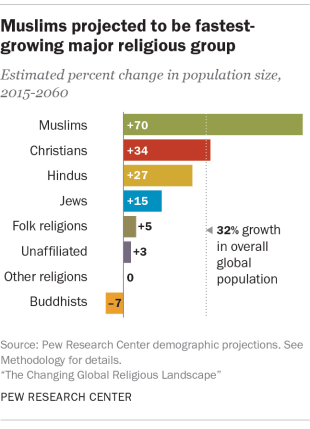
Muslims experienced the greatest natural increase among all religious groups, including Christians. Births to Muslims between 2010 and 2015 outnumbered deaths by 152 million (213 million births vs. 61 million deaths). Globally, all major groups had more births than deaths.
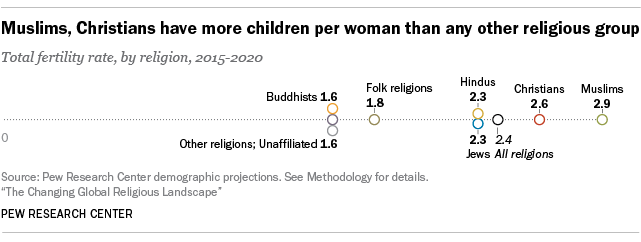
Not all babies will remain in the religion of their mother, of course. In some countries, including the United States, it is fairly common for adults to leave their childhood religion and switch to another faith (or no faith). Globally, however, the effect of religious switching is overshadowed by the impact of differences in fertility and mortality.
Indeed, fertility differences between religious groups are one of the key factors behind current population trends and will be important for future growth. Globally, Muslims have the highest fertility rate of any religious group – an average of 2.9 children per woman, well above replacement level (2.1), the minimum typically needed to maintain a stable population. This fertility advantage is one reason why Muslims are expected to catch up with Christians in absolute number and as a share of the global population in the coming decades. Christians have the second highest fertility rate, at 2.6 children per woman. Hindu and Jewish fertility (2.3 each) are both just below the global average of 2.4 children per woman. All other major religious groups have fertility levels too low to sustain their populations.
[callout align=”alignright”]
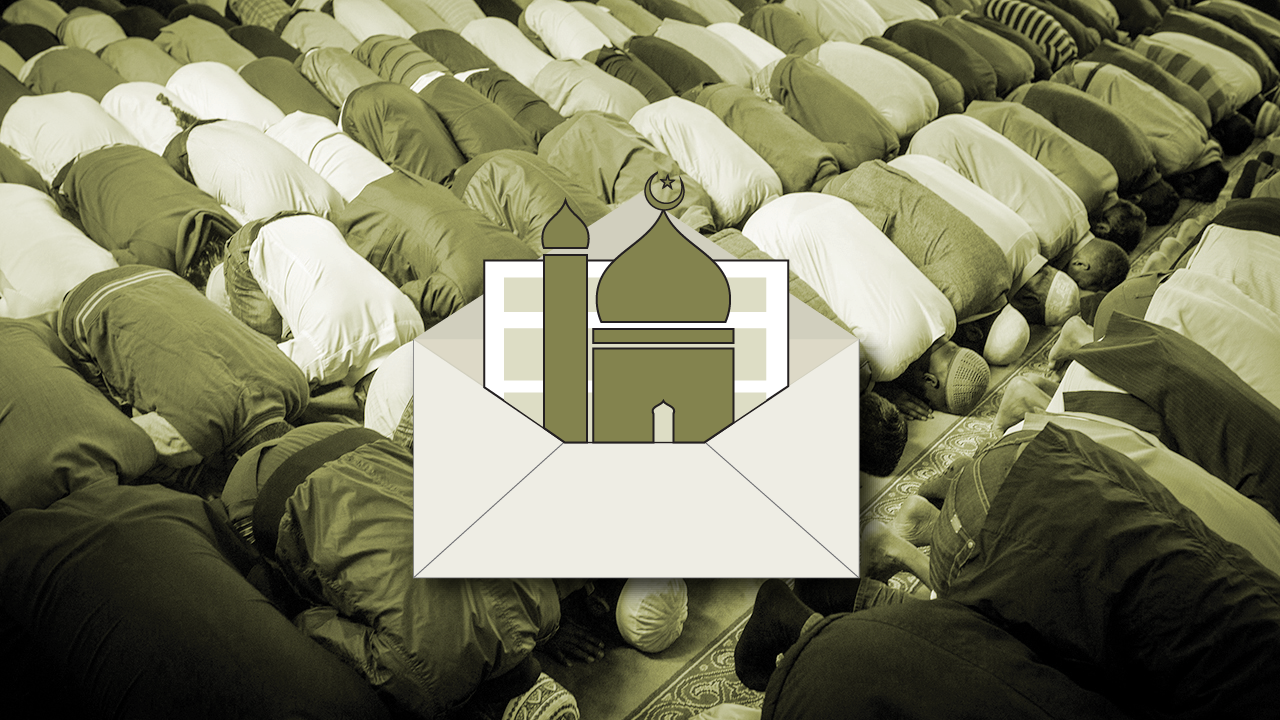
Try our email course on Muslims and Islam
Learn about Muslims and Islam through four short lessons delivered to your inbox every other day. Sign up now!
Age differences are also important for future growth. Some religious groups’ adherents are predominantly young, with their prime childbearing years still ahead of them, while members of other groups are older and largely past their childbearing years. Muslims have the youngest median age (24) of all religious groups, which is also expected to contribute to their rapid growth. Hindus (27) are also younger than the median age of the world’s overall population (30), while the median age of Christians (30) matches the global median. All the other groups are older than the global median, which is part of the reason they are expected to fall behind the pace of global population growth.
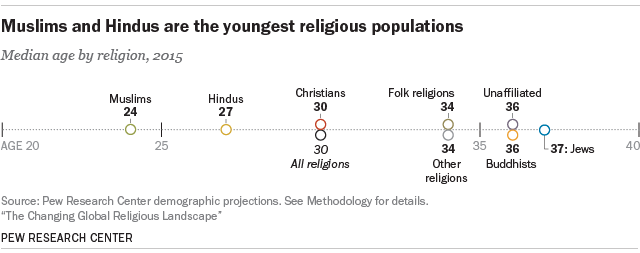
Related posts:
Christians faced widespread harassment in 2015, but mostly in Christian-majority countries
